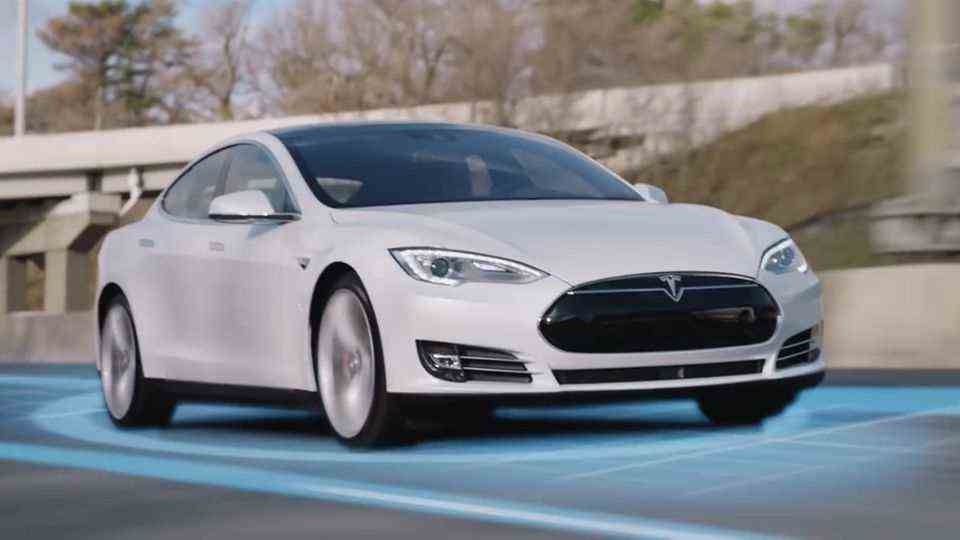Mobility revolution
The Tesla race to catch up: VW is planning massive expansion of its own fast charging infrastructure
In the future, electric cars should be able to charge at significantly more fast charging points. VW goes into an aggressive competition with Tesla. (Symbol photo)
© Andreas Arnold / Picture Alliance
VW wants to decisively advance electromobility and to do so massively expand its charging infrastructure. In the coming years, a network of tens of thousands of fast chargers is to be created. The role model: Tesla.
Tesla is the great pioneer in electromobility. The US carmaker is the world’s leading manufacturer of electric cars and is even threatening to overtake VW, one of the world’s largest automakers. Tesla is not only a big competitor but also, in a certain way, a role model for VW. The Wolfsburg-based company urgently wants to catch up in terms of electromobility and massively expand their charging infrastructure.
For this purpose, Volkswagen hired the experienced energy industry expert Elke Temme at the beginning of the year. Temme had previously worked for the energy companies RWE and Innogy for almost two decades and is now head of the new “Charging & Energy” division at VW. There it bundles the various energy activities across all brands. This includes, for example, the procurement of energy, the option for customers to charge their cars at home and on the go, and the sale of the electricity they need.
That’s exactly what Tesla is doing. The US automaker has been providing its customers with powerful superchargers for years. Elon Musk’s company has a network of around 30,000 fast charging stations worldwide, at which Tesla drivers can charge electricity for 200 kilometers within 15 minutes. In October, Tesla announced that its network has doubled in the past 18 months and is expected to triple in the next two years.
VW plans to build 45,000 fast charging stations by 2025
VW has some catching up to do here. However, due to the planned massive expansion of its fast charging stations, the group expects that its network will quadruple in number to around 45,000 by 2025. In March Volkswagen said that by then it would invest 400 million euros in expanding its global fast-charging network.
To this end, Volkswagen intends to double the number of employees in its charging and energy division to around 300. This year the number has already tripled. “We invest in large growth areas that do not always have to be immediately profitable. We always see these investments in the overall context of our corporate strategy,” said Temme of the Reuters news agency. Building a comprehensive infrastructure is therefore crucial.

Together with BMW, Mercedes-Benz, Ford and Hyundai, the Wolfsburg-based company holds shares in the EU fast charging project Ionity. VW has also teamed up with energy companies such as Italian Enel, British BP and Spanish Iberdrola to help finance the charging infrastructure for electric vehicles on an international level. “Different models are conceivable, from product partnerships to joint ventures to mergers and acquisitions,” said Temme. According to EU estimates, however, five billion euros a year will be needed to expand the charging infrastructure on the continent by 2040.
The charging process is to be simplified in the coming year
According to the car manufacturer, drivers of VW electric cars can charge at more than 250,000 existing public charging points from various providers across Europe. One obstacle so far has been that charging protocols and payment methods can be different from provider to provider. In order to simplify the charging process for its customers, VW wants to offer the “Plug & Charge” technology in Europe from the first quarter of 2022: The car saves the driver’s payment data and a contactless payment is made when the charging plug of a corresponding charging point is connected to the car is connected.
The ability to charge your e-car with electricity at home – for example with in-house solar cells – is also crucial for the mobility transition. Tesla already offers this. Meanwhile, VW sells electricity – even to customers who do not own a VW vehicle. In contrast to Tesla, Volkswagen wants to provide fast charging stations that everyone can use. “We take a different approach than Tesla when it comes to expanding the charging infrastructure,” said Temme.
Because the energy industry expert is certain: “The energy suppliers have to reinvent themselves and switch from nuclear and coal to renewable energies.” In the automotive industry, including at Volkswagen, the current question is how to consistently shift the focus from conventional vehicles to sustainable mobility. After all, Volkswagen is pursuing a major goal: by 2040, almost 100 percent of its vehicles should be climate-neutral.
Source: Reuters, VW press release

